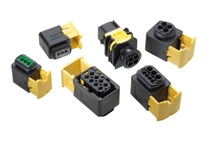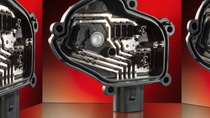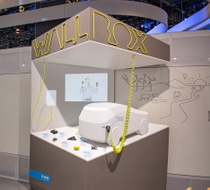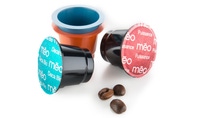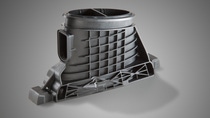Key advantages of Ultradur®
- High rigidity and strength
- Very good dimensional stability under heat
- Low water absorption
- Good resistance to many chemicals
- Exceptional resistance to weathering
- Excellent heat aging behavior

Construction
Polybutylene Terephthalate (PBT)
Ultradur® is BASF’s brand name for its line of partially crystalline, thermoplastic, saturated polyesters derived from polybutylene terephthalate (PBT). They are employed as materials for high-quality technical components in many industry sectors.
Ultradur® shows its strengths wherever high-quality and above all heavy-duty parts are required – for example in the automotive industry, in the electrics and electronic sectors. The range of applications which benefit from these properties of Ultradur® in both industry and everyday life is vast. A feature that is particularly important is the low water absorption and thus the fact that the mechanical and electrical properties are largely independent of the moisture content or the climatic surrounding conditions. Particularly for components that are safety-relevant and have to work reliably for the entire lifetime of a component, Ultradur® is indispensable.
If you want a relaxed drive with your electric car, you better have a charging station at home. Function and safety are decisive criteria here, but optics and design are also becoming more and more important. In the Wallbox Demonstrator, BASF is showing some plastic materials that are ideally suited for certain application points in a wallbox and that cover the high requirements in the wallbox sector particularly well thanks to their product performance.
The most important applications of Ultradur® are automotive engineering, electrical engineering, electronics and telecommunications as well as precision engineering and general mechanical engineering. For these applications, a variety of Ultradur® types is available.
The Ultradur® grades are polyalkylene terephthalate molding compounds based on polybutylene terephthalate. Ultradur® is produced by polycondensation of terephthalic acid or dimethyl terephthalate with 1,4-butanediol using special catalysts. Terephthalic acid, dimethyl terephthalate and 1,4-butanediol are obtained from petrochemical feedstocks, such as xylene and acetylene.
Ultradur® can be processed by all methods known for thermoplastics. The main methods, however, are injection molding and extrusion. Complex moldings are economically manufactured in large numbers from Ultradur® by injection molding. The extrusion process is used to produce film, semi-finished products, pipes, profiled parts, sheet and monofilaments. Semi-finished products are for the most part machined further by means of cutting tools to form finished moldings.
The applications are as manifold as its product properties: Explore the various application possibilities of Ultradur®!
We offer our customers a comprehensive range of services with leading technologies and products. Find the service that matches your needs!
